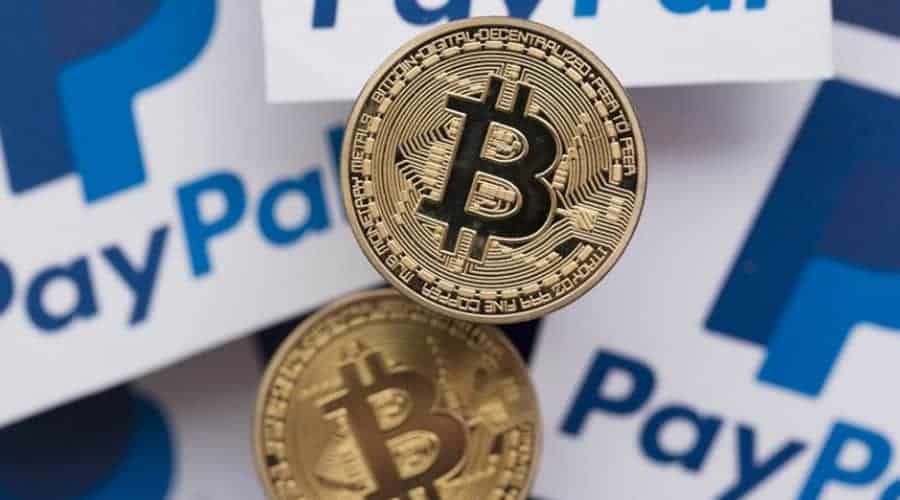Cryptocurrencies have become increasingly popular over the years, and with this popularity comes a growing number of options for purchasing them. One payment option that many people are interested in is PayPal. If you’re looking to buy cryptocurrency with PayPal, here’s what you need to know.
What is PayPal?
PayPal is an online payment system that allows people to transfer money electronically. It was founded in 1998 and has since grown to become one of the most widely used online payment systems in the world. PayPal allows users to link their bank accounts, debit cards, or credit cards to their account, making it easy to transfer money to friends and family, make purchases online, and more.
Which cryptocurrencies can be bought with PayPal?
Currently, PayPal allows its users to buy and sell four different cryptocurrencies: Bitcoin (BTC), Ethereum (ETH), Bitcoin Cash (BCH), and Litecoin (LTC). However, it’s worth noting that not all countries support buying and selling cryptocurrencies through PayPal, so be sure to check if your country is eligible.
How to buy cryptocurrency with PayPal
Step 1: Set up a PayPal account
The first step in buying cryptocurrency with PayPal is to set up a PayPal account if you don’t already have one. To do this, simply go to the PayPal website and follow the instructions to create an account. You’ll need to provide some personal information, such as your name, address, and email address, as well as link your bank account or credit card.
Step 2: Choose a cryptocurrency exchange that accepts PayPal
Not all cryptocurrency exchanges accept PayPal, so you’ll need to do some research to find one that does. Some popular options include Coinbase, eToro, and LocalBitcoins. Make sure to read reviews and compare fees before choosing an exchange.
Step 3: Link your PayPal account to the cryptocurrency exchange
Once you’ve chosen a cryptocurrency exchange that accepts PayPal, you’ll need to link your PayPal account to the exchange. This process will vary depending on the exchange you choose, but generally involves going to the “Payment Methods” section of the exchange and following the instructions to link your PayPal account.
Step 4: Buy cryptocurrency with PayPal
Now that your PayPal account is linked to the cryptocurrency exchange, you can buy cryptocurrency with PayPal. The process will vary depending on the exchange you choose, but generally involves selecting the cryptocurrency you want to buy, choosing PayPal as your payment method, and entering the amount you want to spend.
Step 5: Transfer your cryptocurrency to a wallet
Once you’ve bought your cryptocurrency with PayPal, it’s a good idea to transfer it to a wallet. A wallet is a secure digital wallet that allows you to store, send, and receive cryptocurrency. You can choose from a variety of wallets, including software wallets, hardware wallets, and online wallets. Be sure to choose a wallet that is compatible with the cryptocurrency you’ve purchased.
Tips for buying cryptocurrency with PayPal
Use a reputable cryptocurrency exchange:
Make sure to do your research and choose a reputable cryptocurrency exchange that accepts PayPal. Look for exchanges that have a good reputation, low fees, and strong security measures.
Be aware of fees:
When buying cryptocurrency with PayPal, you’ll likely have to pay fees. These fees can vary depending on the exchange you use, so be sure to read the fine print and understand the fees before making a purchase.
Transfer your cryptocurrency to a wallet:
While it’s possible to keep your cryptocurrency on the exchange where you bought it, it’s generally not recommended. Instead, transfer your cryptocurrency to a wallet for added security.
Keep track of your transactions:
Make sure to keep track of your cryptocurrency transactions for tax purposes.
Pros and cons of buying cryptocurrency with PayPal
Pros:
- Convenience: PayPal is a widely accepted payment method, and many people already have a PayPal account, making it a convenient option for buying cryptocurrency.
- Speed: Transactions with PayPal are generally processed quickly, allowing you to buy cryptocurrency and transfer it to a wallet in a short amount of time.
- Security: PayPal offers strong security measures, including two-factor authentication, to help protect your account and transactions.
Cons:
- Fees: Buying cryptocurrency with PayPal can be expensive, as many exchanges charge high fees for PayPal transactions.
- Limited selection: Currently, PayPal only supports buying and selling four cryptocurrencies, which may not be enough for some users.
- Risk of fraud: Because PayPal transactions are reversible, there is a risk of fraud when buying cryptocurrency with PayPal. Sellers may be hesitant to sell cryptocurrency to buyers who use PayPal, as there is a risk that the buyer could reverse the transaction after receiving the cryptocurrency.
Alternatives to buying cryptocurrency with PayPal
If you’re looking for alternatives to buying cryptocurrency with PayPal, here are a few options:
- Bank transfer: Many cryptocurrency exchanges allow users to buy cryptocurrency using a bank transfer, which can be cheaper than using PayPal.
- Credit or debit card: Some cryptocurrency exchanges also allow users to buy cryptocurrency using a credit or debit card, which can be more convenient than a bank transfer.
- Peer-to-peer exchanges: Peer-to-peer exchanges like Paxful and LocalBitcoins allow users to buy and sell cryptocurrency directly with other users, often using payment methods like cash or bank transfer.
- Crypto ATMs: Cryptocurrency ATMs are becoming more common, and allow users to buy and sell cryptocurrency using cash or a credit/debit card.
Conclusion
Buying cryptocurrency with PayPal can be a convenient option, but it’s important to be aware of the potential drawbacks, such as high fees and limited selection. Make sure to do your research and choose a reputable cryptocurrency exchange, and consider alternative payment methods if PayPal isn’t the right fit for you. As always, remember to keep your cryptocurrency secure by using a trusted wallet and following best practices for online security.











